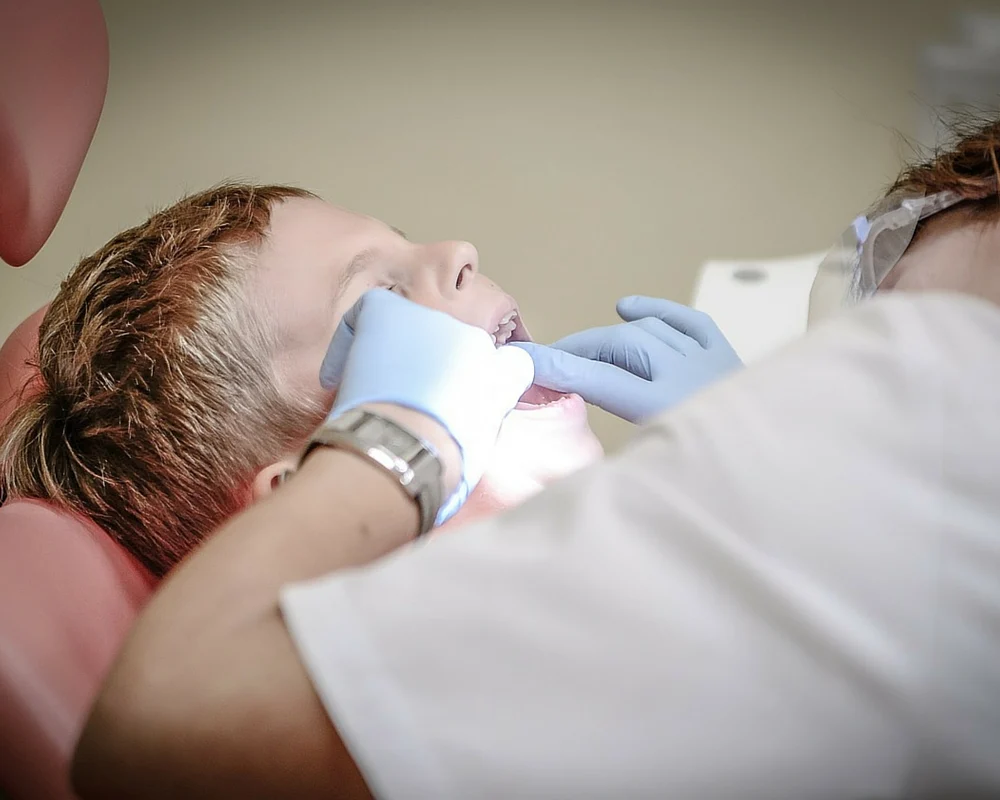When to See The Dentist
It’s recommended that you see a dentist for regular checkups at least once (and preferably twice) a year. Seeing your dentist regularly lets the dentist catch problems early and treat them before they become complicated. But even people who have regular checkups and take good care of their teeth at home can have problems crop up. Sometimes genetics can cause oral health problems for even the best brushers and flossers, or problems could be caused by health issues or medications. Knowing when to see the dentist can make a big difference. In between dental checkups, you should make an appointment to see the dentist if any of these things happen.

Pain
A toothache is one of the worst pains we ever deal with, but the sooner you get to a dentist, the sooner the pain will stop. Toothache is often caused by infection, and even if the toothache goes away by itself or with over-the-counter medication, you should make an appointment to have it checked out.
Swollen or Bleeding Gums
Gum disease is common, but that doesn’t mean it’s not a big deal. Gum disease starts as gingivitis, which is characterized by swollen or reddened gums. It is not something that goes away on its own, and it will almost certainly progress to a more advanced form if left untreated. The good news is that gingivitis can be treated with just a simple cleaning if you get to the dentist soon enough. Regular checkups also let the dentist catch gingivitis before you even notice anything wrong.
Chronic Bad Breath
Bad breath immediately after eating onions or drinking coffee is one thing, but when bad breath seems to be present all the time, it’s a sign of a problem with your gums or your teeth. Using antibacterial mouthwash is a good thing, but if bad breath always seems to come back, you need to see a dentist to figure out the underlying cause.
Dry Mouth
If your mouth is always dry, your teeth and gums could suffer from the lack of saliva. Saliva helps to wash away food particles after we eat, and dry mouth, in addition to be uncomfortable, can lead to a buildup of sugars. Chronic dry mouth is a problem that needs dental treatment.
Mouth Sores
Canker sores are sores that appear inside of the mouth. They are often confused with cold sores, but cold sores appear outside of the mouth and are caused by a virus. Remember that sores inside the mouth are treatable by a dentist. They often go away in a few days and don’t require a visit to a dentist, but if a canker sore or any sore inside of your mouth lasts for a week or more, is unusually painful or is very large, you should see a dentist to have it checked.
Changes to Your Health
If you have been diagnosed with a medical condition such as diabetes, heart disease, or if you are pregnant, you should make an appointment with a dentist. Some health conditions can have an effect on your teeth and gums, and your dentist should be aware of any changes to your health and may offer advice on how to change or maintain your dental health routine.
Emergencies
Dental emergencies include having a tooth broken or knocked out, sudden severe toothache or mouth pain or getting something lodged between the teeth. In the case of a knocked out tooth, the tooth may be able to be saved if you act quickly. You should use gauze to try to stop the bleeding, and if possible, place the tooth back in position in your mouth and hold it in place while on the way to the dentist. If this is too painful, put the tooth in a container of milk. If you can get to the dentist within 30 minutes to an hour, your tooth may be able to be reattached.
Bio –
This guest post is courtesy of The Center for Dental Excellence, one of the dentists in Pocatello, ID that is known for providing quality care in a comfortable environment.
